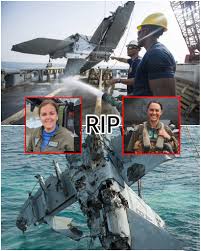Recent Fighter Jet Crashes: Understanding the Impact

Introduction
Fighter jet crashes are a serious concern, not only for the military but also for the safety of civilians and the integrity of national defence. These incidents, often resulting from mechanical failure, pilot error, or external factors, can have significant repercussions on military operations and air safety regulations. The recent spike in fighter jet crashes raises questions about maintenance practices, training programs, and the overall safety protocols within military aviation.
Recent Incidents
In the past few months, several notable fighter jet crashes have made headlines. In September 2023, a United States Air Force F-22 crashed during a training exercise in Alaska, prompting a thorough investigation. Luckily, the pilot safely ejected, avoiding serious injuries. The investigation into the crash aims to determine whether mechanical failure or environmental conditions played a role.
Moreover, in early October 2023, a British Royal Air Force Typhoon jet crashed near the Welsh coast during a routine training mission. While the pilot managed to eject successfully, the incident raised concerns about the need for improved safety measures during training operations, especially in adverse weather conditions.
Implications for Military Aviation
These recent crashes highlight crucial areas of concern for military aviation safety. An increase in the frequency of such incidents calls for immediate attention to the reliability of fighter jets and the adequacy of pilot training programs. Military officials are stressing the importance of revising safety protocols, maintenance checks, and flight operation procedures to prevent further accidents.
Additionally, the psychological impact on pilots, who face the constant risks of flying high-performance aircraft, is being scrutinised. Ensuring that pilots are not only skilled but also mentally prepared for high-stress situations is vital for preventing future mishaps.
Conclusion
The rising trend of fighter jet crashes necessitates a comprehensive review of military aviation practices worldwide. With the potential loss of life and the adverse effects on national security, swift action is required to enhance safety measures. As investigations continue into recent crashes, military authorities are likely to implement stricter maintenance regulations and potentially reevaluate pilot training programs to bolster safety. For readers, it is essential to stay informed about these developments, as they not only affect military personnel but may also have implications for national and international aerospace safety standards.









